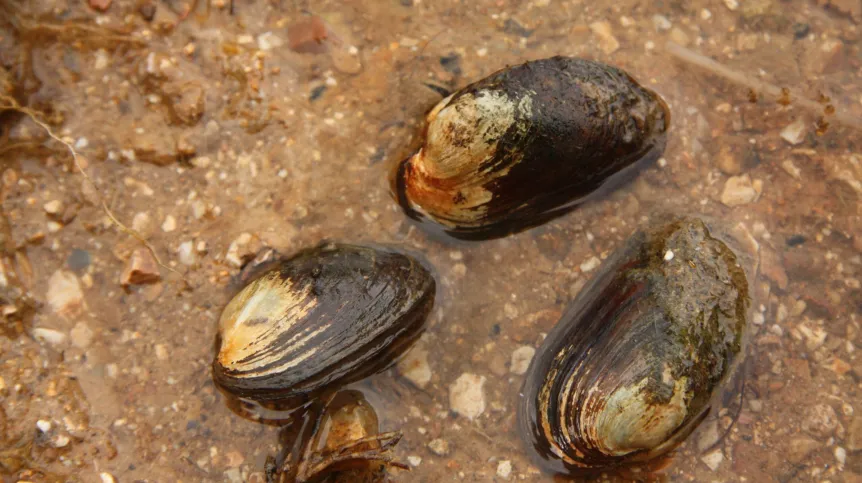Freshwater clams play a key role in aquatic ecosystems, serving as bioindicators and improving water quality through filtration. Unfortunately, in recent decades, there has been a drastic decline in their numbers, raising serious concerns among scientists and ecologists.
Reproductive flexibility and climate change
A study conducted by Polish scientists, Prof. Tadeusz Zając and Prof. Katarzyna Zając from the Institute of Nature Conservation of the Polish Academy of Sciences, focused on the species of thick-shelled river mussels (Unio crassus). Analysis of populations in four Polish rivers showed that these mussels have flexible spawning dates; they start spawning at different times of the year, depending on water temperature. However, excessively high summer temperatures increase their mortality and limit their reproductive success. In warmer waters, clams use more energy to survive and fight pathogens, which negatively affects their ability to reproduce.
Impact of climate change on mussel populations in Europe
The phenomenon of mussel extinction is not limited to Poland alone. There is a decline in the numbers of these organisms throughout Europe. In Greece, for example, there has been a 90% decline in mussel harvest due to record high sea temperatures in 2024, threatening the livelihoods of local communities.
New discoveries in systematics of river mussels
Recent research by an international team of scientists, including Polish researchers, has shown that the thick-shelled river mussel species (Unio crassus) is actually a complex of 12 distinct species, two of which are found in Poland. This discovery has important implications for conservation efforts, as each of these species may require individual approaches to conservation and population management.
Conservation efforts and challenges
In Poland, intensive efforts are being made to protect freshwater mussels, including inventories, genetic diversity studies and reintroductions. Projects carried out between 2010 and 2014 contributed to increasing the population size and expanding the range of freshwater mussels. Nevertheless, climate change, water pollution and habitat degradation continue to pose serious threats to these organisms.
Conservation of freshwater mussels requires integrated measures that take into account both habitat protection and countering the effects of climate change. It is also crucial to continue research on the biology and ecology of these species in order to effectively implement conservation strategies.
Sources: Reuters, Science in Poland, kmae-journal.org / Photo: Adobe Stock







